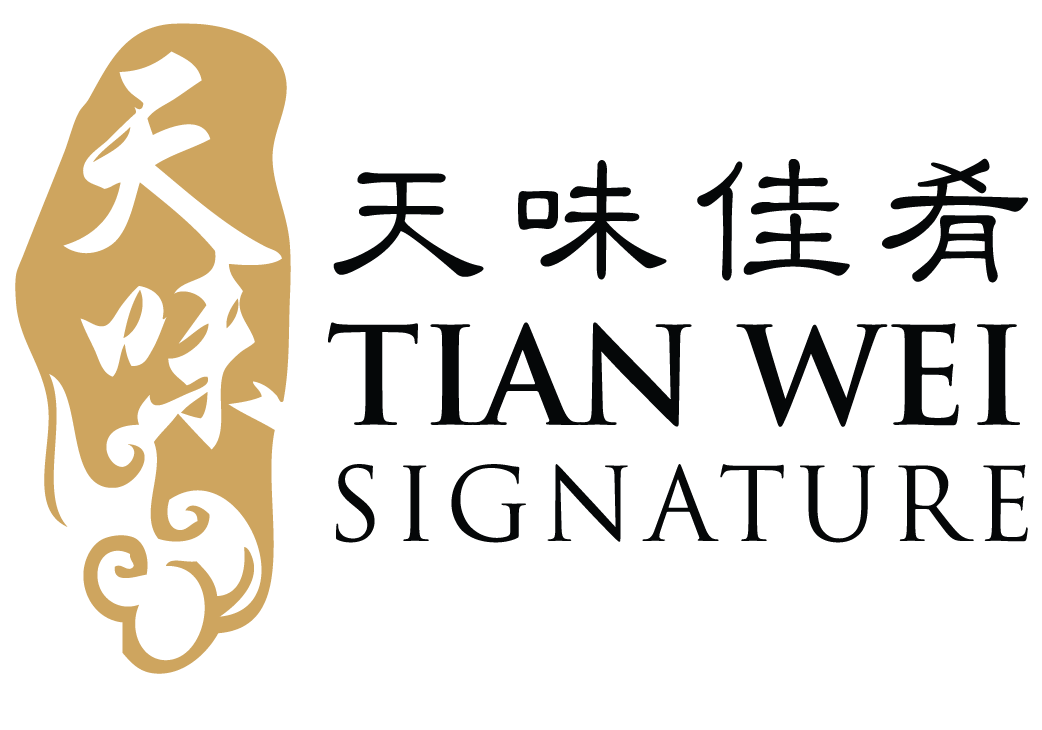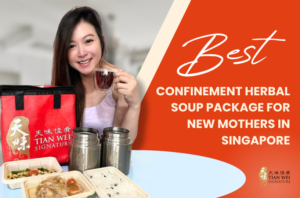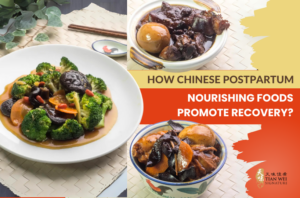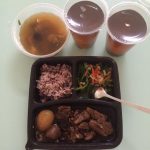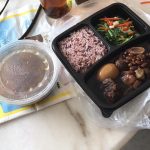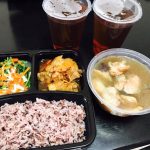81 Tagore Lane, TAG A, #01-11 Singapore 787502 ♦ Reservation : +65 6727 5599
Pregnancy Diet: What to Eat and What Not to Eat
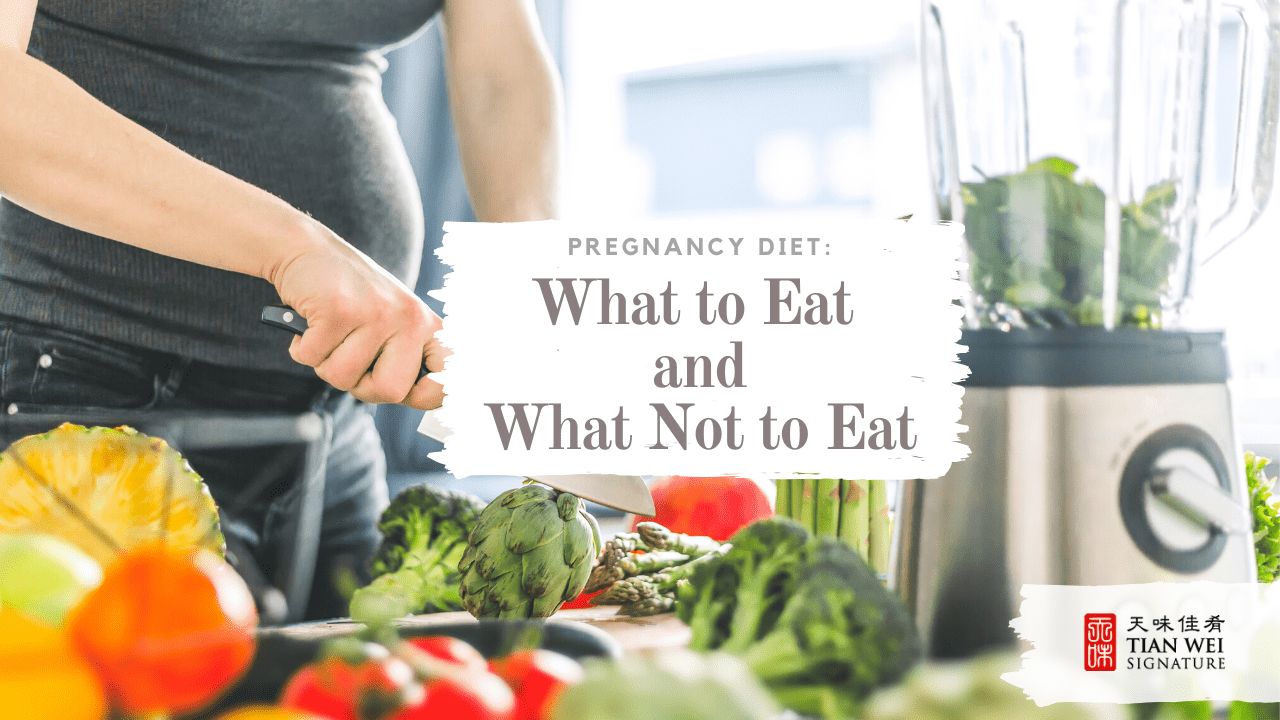
Congratulations on your pregnancy, mummy and daddy! We’re so happy you are embarking on a meaningful and beautiful journey. Undoubtedly, there may be many things running through your head at the moment – items to prepare for your soon-to-arrive newborn, tools and help to prepare for yourself as a new mother, and how your lifestyle will change starting from pregnancy!
One of the crucial aspects you have to consider is your diet. During pregnancy, you need to pay extra attention to your pregnancy diet due to a very simple reason – the nutrients are also supplied to the baby. If you lack the essential nutrients, your baby’s development may also be affected.
Is there much difference between the foods you should have during pregnancy and what to eat during confinement? Well, not to a significant extent! The pregnancy diet Singapore moms usually follow may not differ that much compared to your regular diet, especially if you are not a regular consumer of alcohol to begin with.
If you have always avoided unhealthy foods, the first step should be easier. More importantly, you must remember that consuming the proper nutritious food would more likely ensure a healthy mom and baby! With that, here are lists of foods to have and not to have when pregnant!
Food you should eat during pregnancy
Fruit and Vegetables
Fresh fruit and vegetables are the all-time food that would never go wrong. They can be dried, frozen, fresh or juice. However, fresh and frozen fruits would have a higher level of vitamins and nutrients.
For example, the berries are packed with vitamin C which is important for immune function. Dried fruits actually have the same amount of nutrients as fresh fruits but without all the water they originally have. On the other hand, dark, green vegetables contain many nutrients that a pregnant woman needs. For example, spinach and kale are rich in vitamin K, vitamin C, calcium, fibre, and potassium.
Fibre
Pregnant women are more likely to experience constipation. You are highly encouraged to consume fibre to prevent it. The foods that are generally rich in fibre apart from fruits and vegetables are whole grains. Unlike refined grains, whole grains are packed with B vitamins and plant compounds. Quinoa and oats are also rich in protein. Other foods that are rich in fibre that you can consider eating during pregnancy are whole-grain pasta, whole-grain bread, wild rice, beans, fruits and vegetables.
The whole grain is known as the “happy chemical”. Not only is it a natural mood stabilizer, but it also keeps your energy and blood sugar.
Protein
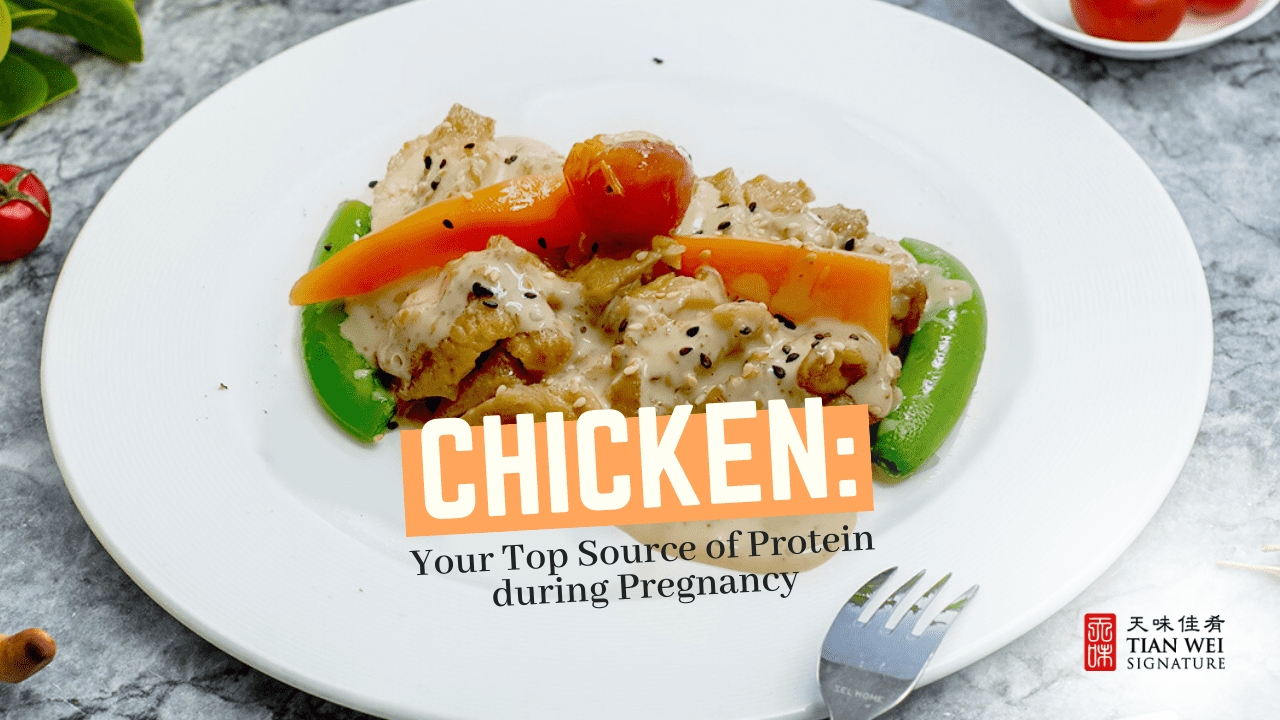
Good sources of protein – lean meats, eggs, and fish, are particularly important for pregnant women. Lean meat like beef, pork, and chicken provides high-quality protein. Egg contains almost every nutrient you need, including protein, fats, vitamins and minerals. Eggs are packed with protein, vitamin D and B vitamins. Another important source that we can get from eggs is choline. It is essential for the brain development of the fetus.
What about if you are vegan? You can consider tofu, soy products, seeds, nuts, beans, quinoa and legumes as great sources of protein.
Fats
Healthy fats, also called monounsaturated fats, are needed during pregnancy. A high-fat diet may inherit future diabetes in babies. Hence, it is better that fats do not exceed 30% of your pregnancy diet. Foods high in monounsaturated fats include peanut oil, olive oil, sunflower oil and avocado. Avocados are also high in vitamin C, vitamin E, vitamin K, copper and fibre. Healthy fats would benefit the building of the fetus’s brain, tissues, and skin.
Iron
Pregnant mothers need more iron which is the main part of the haemoglobin. Extra iron is needed during pregnancy as a mother would increase almost 50% of blood volume in her body which requires more iron to make sure there is adequate oxygen supply for both mother and baby. Some foods that are rich in iron are salmon, cooked oysters, egg yolk, and poultry. Salmon is also rich in omega-3 fatty acids which help to build the fetus’s brain and eyes.
Food you should avoid during pregnancy
High Mercury Fish
You may have heard that pregnant women need to avoid eating fish that contain high levels of mercury. This is due to the fact that it can pass the placenta barrier and probably cause damage to the fetus. As a growing baby has a sensitive developing nervous system, it is necessary to avoid mercury consumption to prevent neurologic damage to the baby.
In case you are still determining which fish is high in mercury, they include the Marlin, Swordfish, Shark, Yellowfin Tuna, Bigeye Tuna, Tilefishes, Orange Roughy, and King Mackerel.
Undercooked eggs
Also making it to our list of what not to eat during confinement and pregnancy is raw eggs or undercooked eggs. Once you feel like having an egg, make sure it is cooked until the yolk and white are solid. It is due to the reason that undercooked eggs can be a source of salmonella, which is a common factor of food poisoning. On top of that, do avoid foods that include raw eggs, for example, mousse and mayonnaise.
Unpasteurized dairy product
In order to reduce the risk of foodborne illness, the next thing to avoid eating is the unpasteurized dairy product, which applies to goat milk and sheep milk. The same goes for soft cheese, unpasteurized milk may contain bacteria, called listeria. It probably shows no symptoms to the mother, but it can jeopardize pregnancy by perhaps triggering miscarriage or premature births.
Alcohol and Caffeine
It is best to completely avoid alcohol as it may affect the brain development and growth for baby.
On the other hand,it is better to cut down on your consumption of caffeine. Limit caffeine intake to not more than 200mg of caffeine per day which is about 1 or 2 servings of coffee per day. Excessive caffeine may affect the mood or sleeping quality of your baby.
Excessive Vitamin A foods
We know that vitamin A is important for visual health. However, excessive consumption of Vitamin A during pregnancy would bring harm to the baby which probably causes birth defects. What can a mom do is avoid eating liver or liver products. If you are deficient in vitamin A, it is best to seek a doctor and get their advice on appropriate doses of supplementations. The safest way to do this is to consult a professional before taking any multivitamins.
Going through the pregnancy journey is not an easy job, but worth it when your little one gets the best and always stays healthy. After delivering your newborn, it’s time to take note of the post natal diet. Although there is still some food to avoid, there is also amazing food waiting for you!
